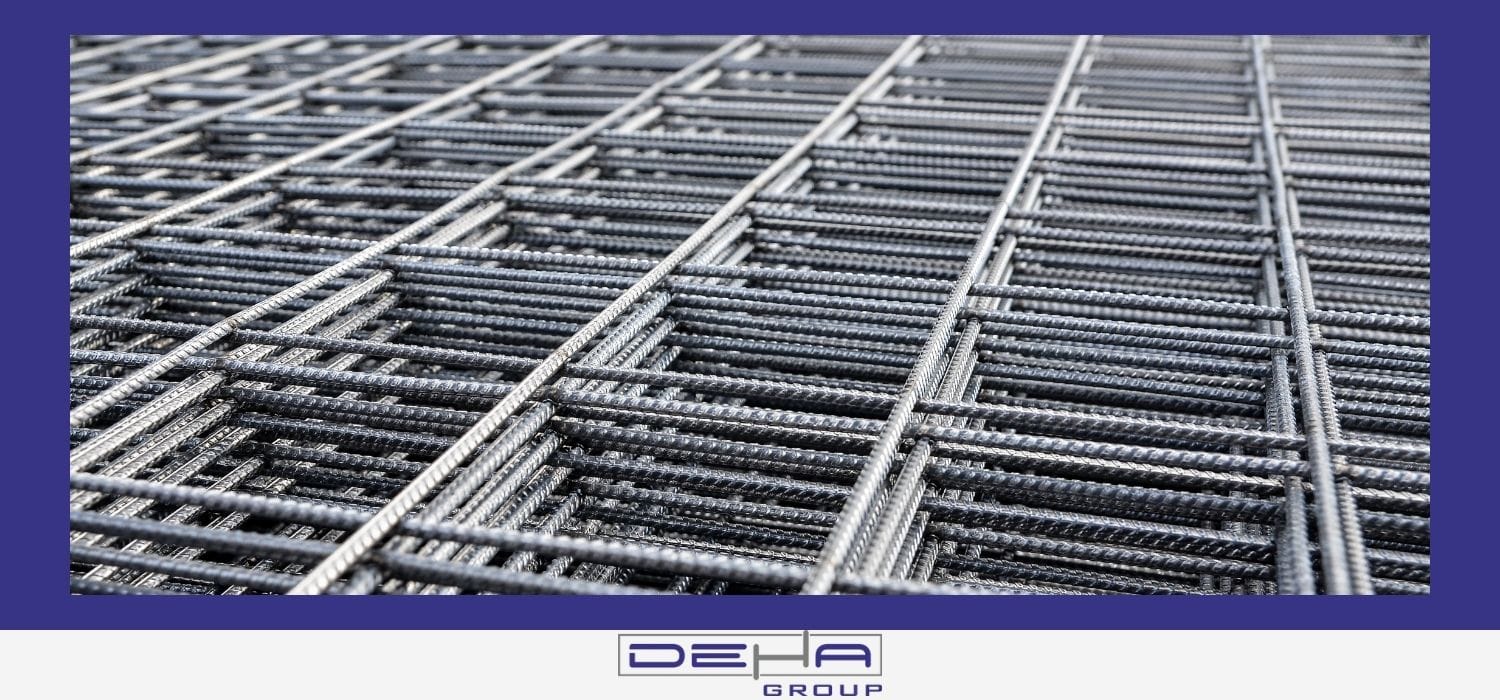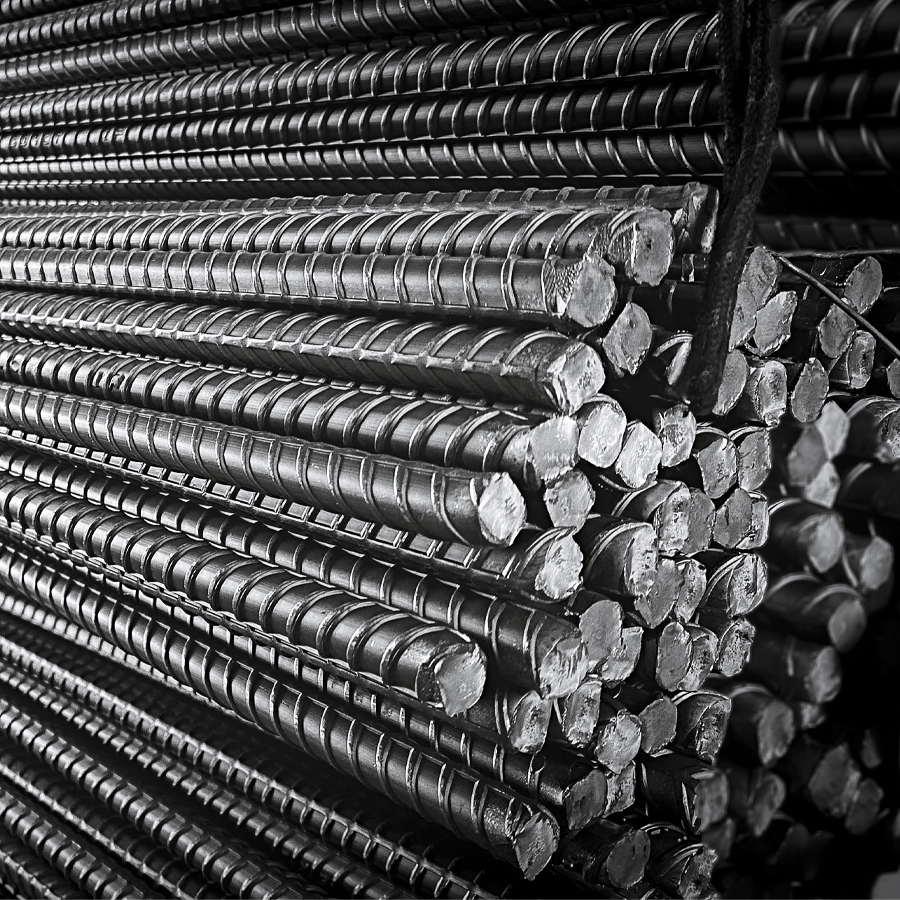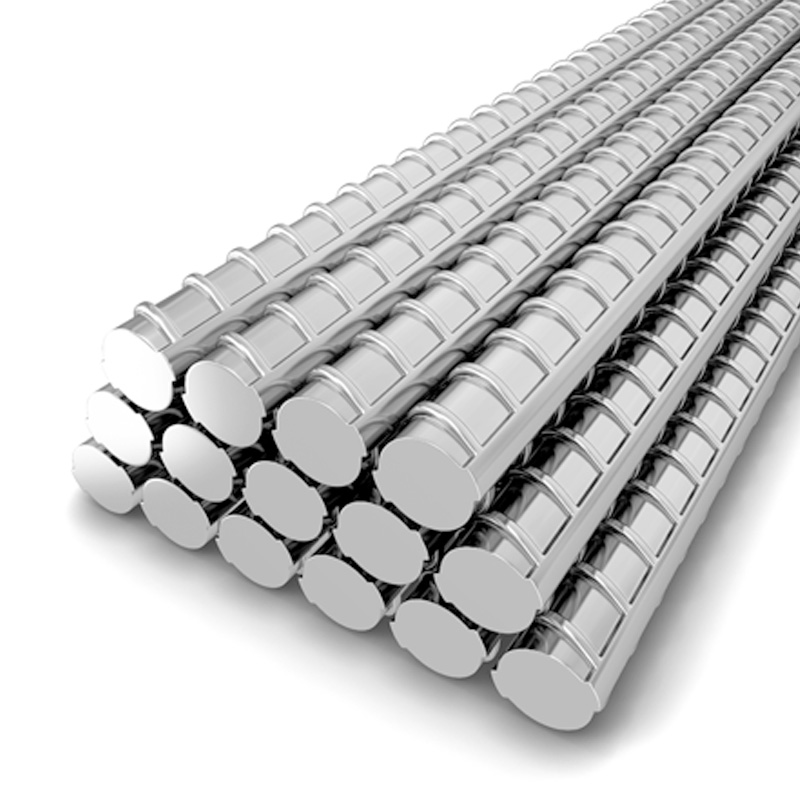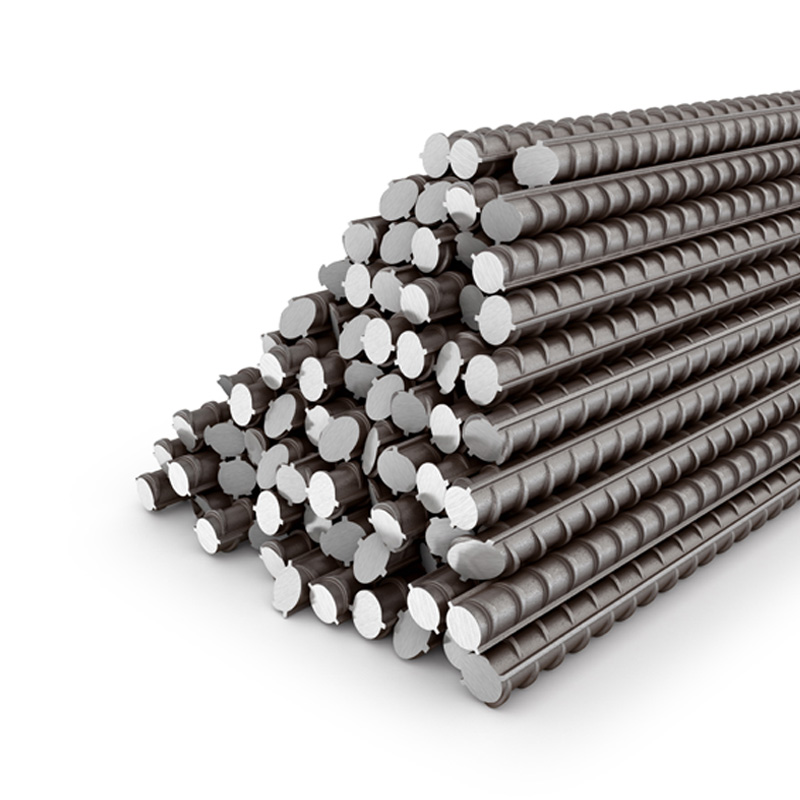Ribbed construction steel stands out as an indispensable material in modern construction projects. The importance of ribbed construction steel cannot be denied for creating durable structures and building long-lasting buildings.
Ribbed construction rebar is the name given to steel iron bars with lines or notches on them. These notches are designed to create a better bond between the rebar and concrete. Ribbed construction rebar is used to enhance the durability and strength of reinforced concrete structures. Among the ribbed rebar types, there are different sizes and steel grades. These features vary depending on the project in which the material is used.
Ribbed construction steel plays a very important role in reinforced concrete structures. Thanks to the extra strength it provides to the concrete, it ensures that the structure is more resistant to severe loads and natural disasters such as earthquakes. With the variety of ribbed steel, the appropriate strength level for projects can be easily selected. The ridges on these bars create a tight bond with the concrete and minimize the risk of slipping. Due to the insufficient strength of this connection in plain bars, ribbed construction steel is preferred more.
| NOMINAL DIAMETER D (mm) | CIRCUMFERENCE U (mm) | CROSS-SECTIONAL AREA F (mm²) | NOMINAL MASS G (kg / 1 m) | NOMINAL MASS G (kg / 12 m) |
|---|---|---|---|---|
| 08 mm | 25.10 | 50.2 | 0.394 | 4.728 |
| 10 mm | 31.40 | 78.5 | 0.616 | 7.392 |
| 12 mm | 37.70 | 113.0 | 0.887 | 10.644 |
| 14 mm | 44.00 | 153.9 | 1.208 | 14.496 |
| 16 mm | 50.30 | 201.0 | 1.578 | 18.936 |
| 18 mm | 56.50 | 254.3 | 1.997 | 23.964 |
| 20 mm | 62.80 | 314.0 | 2.465 | 29.58 |
| 22 mm | 69.10 | 379.9 | 2.983 | 35.796 |
| 24 mm | 75.40 | 452.2 | 3.549 | 42.588 |
| 25 mm | 78.50 | 490.6 | 3.851 | 46.212 |
| 26 mm | 81.70 | 530.7 | 4.166 | 49.992 |
| 28 mm | 87.90 | 615.4 | 4.831 | 57.972 |
| 30 mm | 94.20 | 706.5 | 5.546 | 66.552 |
| 32 mm | 100.50 | 803.85 | 6.310 | 75.72 |
| 36 mm | 113.04 | 1017.4 | 7.986 | 95.832 |
| 40 mm | 125.60 | 1256.0 | 9.860 | 118.320 |
| 50 mm | 157.00 | 1962.5 | 15.406 | 184.872 |
Where is Ribbed Construction Steel Used?
Ribbed construction steel is typically used in the following areas:
Reinforced Concrete Structures: Ribbed steel is essential in buildings such as apartments, skyscrapers, and industrial structures.
Bridges: It is used to enhance the durability of steel structures.
Dams and Ports: Used in the steel reinforcement of these structures that must withstand high pressure.
Tunnels and Infrastructure Projects: Ribbed steel is preferred as a reinforcement element in tunnel and infrastructure works.
How is Ribbed Construction Steel Produced?
The production process of ribbed construction steel is carried out with modern technologies and precise measurements. These production stages can be summarized as follows:
Raw Material Preparation: The steel, which is the raw material for ribbed steel, is first melted and cleaned.
Processing: The melted steel is formed into specific rod sizes and given a ribbed structure.
Rolling: Rolling is performed to apply the ribs onto the steel rods.
Cooling and Cutting: After rolling, the steel is rapidly cooled and cut to the required sizes using laser cutting.
Ribbed construction steel manufacturers carry out these stages meticulously to obtain products that meet standards. The production of ribbed construction steel is conducted in accordance with the construction standards of countries.
How Does Ribbed Construction Steel Differ from Smooth Steel?
The main differences between ribbed construction steel and smooth steel are:
Surface Structure: Ribbed steel has ribs, while smooth steel has a smooth surface.
Compatibility with Concrete: Ribbed steel forms a tighter bond with concrete, reducing the risk of slippage.
Usage Areas: Ribbed construction steel is preferred in reinforced concrete structures, while smooth steel is generally used in decorative or light structures.
Durability: Ribbed steel provides greater strength than smooth steel due to its ribbed structure.
Ribbed Construction Steel Manufacturers and Market Importance
Ribbed construction steel manufacturers play a critical role in the construction sector. Manufacturers are highly sensitive regarding both quality and compliance with standards. By offering various types of ribbed steel, they meet the needs of different projects. This positively affects competition and developments within the sector.
Ribbed construction steel is an indispensable part of modern construction technologies. The varieties of ribbed steel and the production of ribbed construction steel are important factors that shape the dynamics of the sector. These insights can be your guide when choosing for your construction projects.
According to Which Standards is Ribbed Construction Steel Produced?
Ribbed construction steel is one of the most important materials used in steel structures and is produced according to specific standards. Known for its durability and the strength it adds to structures, its production usually follows these standards:
TS 708: Set by the Turkish Standards Institute, this standard defines the chemical composition, mechanical properties, and dimensions of ribbed construction steels.
ASTM A615/A615M: One of the American standards, used for steel bars.
DIN 488: Defines the properties of ribbed steel in German standards.
BS 4449: A standard from the United Kingdom, often used as a basis for many projects in Europe.
ISO 6935-2: Used in the production of ribbed steel complying with international standards.
These standards ensure that ribbed steel varieties meet certain durability, flexibility, and chemical compatibility. Ribbed construction steel manufacturers strictly adhere to these standards in the production process.

What are the Advantages of Ribbed Construction Steel?
Ribbed construction steel has numerous advantages in steel structures and reinforced concrete projects. These advantages are the main reason for its widespread preference.
High Strength: Ribbed steel varieties help concrete resist tensile stresses. This feature increases the durability of structures.
Perfect Compatibility with Concrete: Thanks to its ribbed structure, it establishes a tighter bond with concrete, reducing the risk of slippage.
Corrosion Resistance: Ribbed construction steel produced according to standards is long-lasting and resistant to corrosion due to its chemical compositions.
Cost-Effectiveness: The production of ribbed construction steel offers versatile usage opportunities, making it a cost-effective option.
Formability: The ability to be shaped according to project needs facilitates architectural and engineering designs.
These advantages have made ribbed construction steel critically important in the modern construction sector.
What Materials is Ribbed Construction Steel Made From?
Ribbed construction steel is a steel-based material and generally consists of the following components:
Iron (Fe): It is the main component and provides the durability of ribbed steel.
Carbon (C): Used to increase the hardness and strength of the material, typically found in 0.2%-0.5% quantities.
Manganese (Mn): Increases the formability of steel.
Silicon (Si): Enhances the modulus of elasticity, making the material flexible.
Sulfur (S) and Phosphorus (P): Trace elements that affect material quality. It is preferable to have them in low quantities.
Ribbed construction steel manufacturers combine these materials carefully to ensure the product is both durable and compliant with standards.
In Which Areas Do Ribbed Construction Steel Manufacturers Provide Services?
Ribbed construction steel manufacturers provide services in the following areas:
Residential Projects: Ribbed steel is widely used in constructing high-durability steel structures for housing.
Industrial Structures: Ribbed construction steel is critically important for factories, warehouses, and other industrial buildings.
Infrastructure Projects: Ribbed steel varieties are preferred in bridges, dams, tunnels, and roads.
Energy Sector: The need for durable building materials in energy plants and other energy projects promotes the widespread use of ribbed construction steel.
Renovation and Strengthening Projects: Used in strengthening old structures.
Ribbed construction steel manufacturers offer special solutions suitable for different projects, playing a versatile role in the construction process.
Which Standards Do Ribbed Construction Steel Manufacturers Ensure Compliance With in Their Products?
Ribbed construction steel manufacturers ensure compliance with certain standards by prioritizing quality and durability during the production process. Among these standards are:
Quality Control Procedures: Tests are conducted during ribbed construction steel production to minimize production errors.
Environmental Responsibility: Manufacturers take steps to reduce emissions during the steel casting process.
Certification: ISO, CE, and similar certifications confirm that ribbed steels meet international standards.
Precise Measurement: The diameter, length, and rib structure of ribbed steel are carefully measured in accordance with standards.
Material Testing: Tests on chemical composition and tensile strength are performed to ensure the product is of quality.
Ribbed construction steel manufacturers focus on meeting the needs of the sector with environmentally friendly and innovative approaches.
Ribbed construction steel offers versatile usage opportunities in modern construction projects as a durable material. Ribbed steel varieties are produced in compliance with international standards and have become an indispensable part of the construction sector with their various advantages. Ribbed construction steel manufacturers continue to strengthen their place in the industry with innovative and environmentally friendly approaches.

 TR
TR



